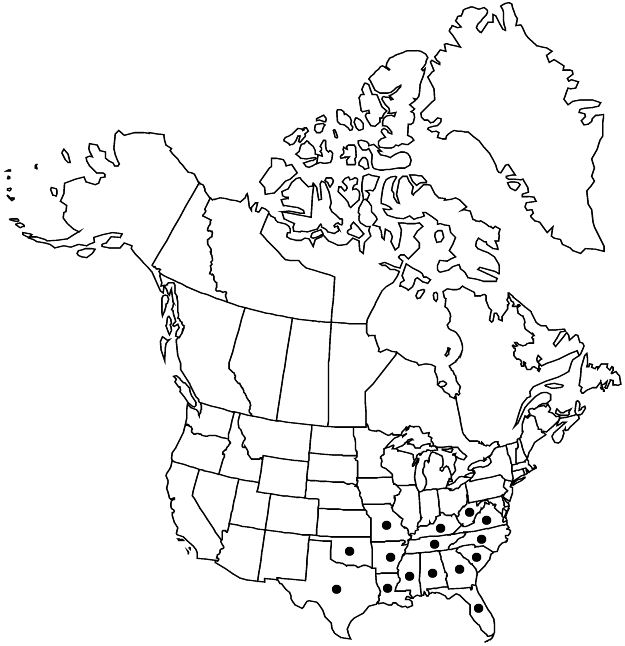Parnassia grandifolia
in A. P. de Candolle and A. L. P. P. de Candolle, Prodr. 1: 320. 1824.
Herbs with caudices. Stems 12–70 cm. Leaves: basal in rosettes; petiole 3–15 cm; blade (of larger leaves) oblong-ovate to suborbiculate, 25–80 × 20–70 mm, longer than to ca. as long as wide, base rounded to subcordate, apex obtuse; cauline on proximal half of stem or absent. Flowers: sepals reflexed in fruit, oblong to ovate, 2.5–5 mm, margins hyaline, 0.2–0.5 mm wide, entire, apex obtuse; petals 7–11-veined, oblong to ovate, 15–22 × 6–10 mm, length 3–4 times sepals, base cuneate to rounded, margins entire or undulate; stamens 7–9 mm; anthers 2–3 mm; staminodes 3-fid almost to base, gland-tipped, 10–16 mm, longer than stamens, apical glands elliptic to subglobose, 0.4–0.6 mm; ovary green, sometimes whitish at base. Capsules 10–15 mm. 2n = 32.
Phenology: Flowering mid summer–fall.
Habitat: Wet, calcareous rocks, shores, meadows, fens.
Elevation: 200–1400 m.
Distribution

Ala., Ark., Fla., Ga., Ky., La., Miss., Mo., N.C., Okla., S.C., Tenn., Tex., Va., W.Va.
Discussion
Parnassia grandifolia is uncommon throughout most of its range; it is listed as endangered in Florida and Kentucky, threatened in North Carolina, and of special concern in Tennessee.
Selected References
None.